Artificial Sweeteners: Sweet Tasting Poison, or Useful for Fat Loss?

Over the past decade, we have observed significant growth in the use of artificial sweeteners in commercial foods and beverages. ‘Sugar substitution’ is now commonplace in a variety of commercially available products including:
- Soft drinks
- Baked goods
- Dairy products
- Candy/Chocolate
Often referred to as non-nutritive sweeteners, artificial sweeteners are food additives that provide a sweet sugar-like taste while having significantly less (or sometimes nil) energy than their calorie-laden sugar counterpart. Such additives are mostly derived from naturally occurring plant substances and are known to be – in most cases – many times sweeter than sugar (on a gram for gram basis).
There has been substantial speculation across the internet and social media regarding the safety and effectiveness of artificial sweeteners. For many, particularly among the general population, artificial sweeteners carry (in my opinion an undeserved) bad reputation. As a result, artificial sweeteners are largely frowned upon, leaving many to ask, just how bad are artificial sweeteners for us?
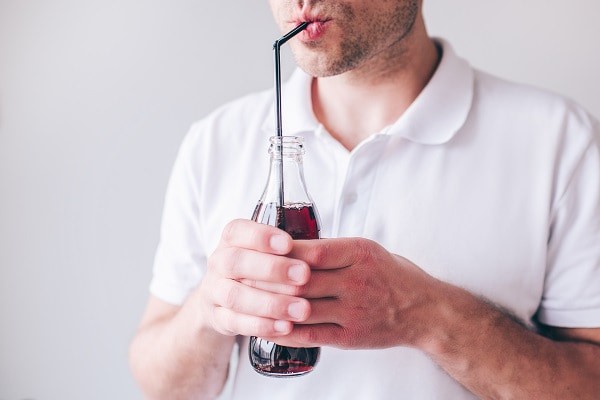
The dose makes the poison
When discussing the safety of a particular ingredient or substance, we must first take into consideration the amount of the substance that is being consumed. You would perhaps be surprised to hear that a number of common foods consumed in our daily diet contain substances that would be toxic to the human body if consumed in large amounts.
Apples are a great example of this, as the seeds contain a low dose of cyanide. Cyanide is of course a highly toxic substance (can even cause death), but the fact that the cyanide is present in such a small amount makes apples safe to consume and harmless to the body.
A similar situation applies to artificial sweeteners. The amounts in which most artificial sweeteners (Aspartame, Saccharine, Allulose, Neotame, Sucralose, Stevia to name a few) would have to be consumed in order for them to become toxic is almost impossible to accomplish via regular food and drink consumption. Remember, while many will bad-mouth artificial sweeteners by saying “what about the CHEMICALSSS?!”, everything we eat contains chemicals. Under normal circumstances, these chemicals just aren’t toxic, unless consumed in exorbitant quantities.
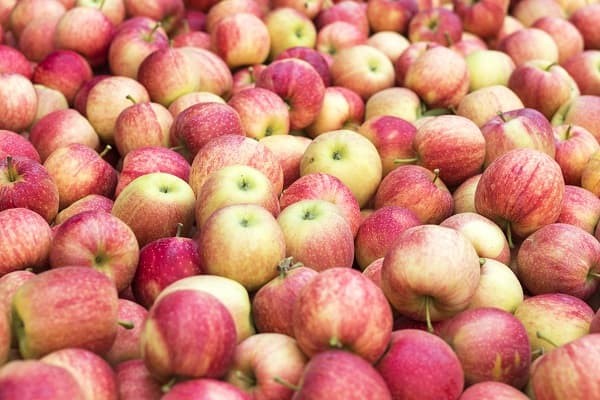
What does the research say?
Stevia
The literature has been quite consistent regarding the safety and toxicity levels of artificial sweeteners. For example, the allowable daily intake for Stevia is 4 mg per kilogram of body weight a day, with several studies showing that Stevia (and almost all other artificial sweeteners) are safe for the vast majority of people. Many doubters will often reference rodent studies to justify their argument that artificial sweeteners are harmful. However, looking at the rodent studies investigating Stevia, researchers fed the rats 4 grams per day, in the vicinity of 100x the “safe” human dose.
Aspartame
Aspartame is probably the artificial sweetener that has received the most criticism over the past few years. The issue of whether aspartame is safe or not is still a very controversial one. Aspartame contains wood alcohol called Methanol, which is proven to be very toxic to the human body when consumed in large amounts. However, this is not a cause for alarm, as the Methanol content in Aspartame (applicable to human consumption) is extremely small. Furthermore, when Aspartame is consumed, the gut breaks it down rapidly, preventing notable amounts of Aspartame from reaching the bloodstream.
A study by Magnuson and colleagues investigated how different single doses of Aspartame affect metabolism and other health parameters in humans and concluded that Aspartame consumption (even at doses much higher than that expected under typical circumstances) has virtually no impact on metabolism and other blood biomarkers. Given that the allowable daily intake of Aspartame is 40 mg per kilogram of body weight, it would take around 19 cans of diet soda (for a 75 kg person) to reach this threshold.
Sucralose
In a similar vein, sucralose has also been demonised heavily for its supposed chlorine content. While this is true, as with the previous sweeteners discussed above, the amounts in which this “toxic” “chemical” is present in regular consumption of sucralose is extremely low and subsequently harmless.
To summarise, it is quite clear that we consume far fewer artificial sweeteners than would be required to surpass allowable safety limits for intake. The misinformation circulating online - unfortunately - has altered the perception of artificial sweeteners among the general population, creating undeserved notoriety and fear-mongering.
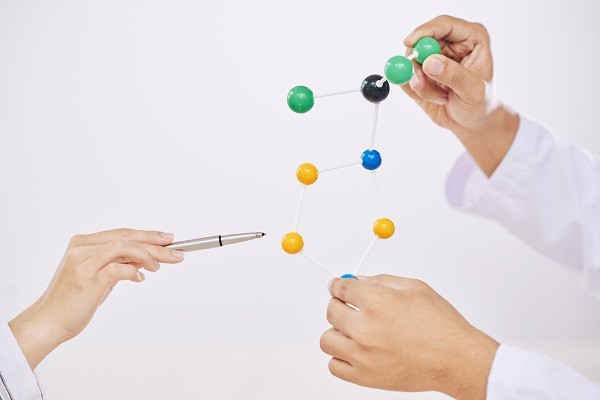
Artificial Sweeteners can be a useful tool for fat loss
Contrary to popular belief that artificial sweeteners are harmful to human health, these products can actually be a viable fat loss strategy. We know that the key factor to successful fat loss is establishing a calorie deficit, and maintaining it. While sugar itself also has an undeservedly bad reputation in the fitness and health industry (that’s for another story), sugar is very calorie-dense. This means sugar contains a very high amount of calories for a small volume of “food”, is not very satiating, and is easy to overconsume. Most artificial sweeteners have very few (and sometimes zero) calories, thus substituting sugar in the diet for an artificial replacement can have a profound impact on reducing calorie intake, and allowing easier adherence to the calorie deficit required for fat loss.
A systematic review from Rogers and Appleton reviewed a total of 51 studies concerning the potential effects of artificial sweeteners on body weight and energy intake. The results from this review showed that those who consumed artificial sweeteners in place of sugar consumed an average of 225-312 fewer calories each day, and demonstrated no negative health effects whatsoever associated with artificial sweetener consumption. As expected, those who consumed artificial sweeteners instead of sugar also had more pronounced body weight and body fat losses! Many claims that consuming artificial sweeteners triggers increased cravings for and intake of sweets and confectionery products, but as this review showed, this is not the case!
Thus, artificial sweeteners can be a great tool for those looking to shed a few winter pounds, because they allow us to consume a calorie-reduced alternative to many of our favourite food and beverage products. Choosing the lower-calorie alternatives can also allow us “save” some calories for those special social meals with friends, without causing us to blow the waistline!
In conclusion, artificial sweeteners have taken a lot of shots from our industry over the past decade, despite the notable body of literature that demonstrates a lack of negative repercussions following consumption. As the research stands, artificial sweeteners are not only safe to consume, but they can be a great tool for reducing calorie intake with minimal effort and cost.

Jackson Peos
Jackson Peos has completed a PhD at the University of Western Australia, and has a straightforward approach to nutrition and supplements.
He's completed his BSc in Sports Science, and Exercise & Health, and his BSc (Hons) in Exercise Physiology.
References:
- Curry LL, Roberts A. Subchronic toxicity of rebaudioside A. Food Chem Toxicol. 2008 Jul;46 Suppl 7:S11-20. doi: 10.1016/j.fct.2008.04.042. Epub 2008 May 16. PMID: 18562069.
- Goldsmith LA. Acute and subchronic toxicity of sucralose. Food Chem Toxicol. 2000;38 Suppl 2:S53-69. doi: 10.1016/s0278-6915(00)00028-4. PMID: 10882818.
- Healthline. 2021. Are Apple Seeds Poisonous?. [online] Available at: <https://www.healthline.com/health/food-nutrition/are-apple-seeds-poisonous>.
- Magnuson BA, Burdock GA, Doull J, Kroes RM, Marsh GM, Pariza MW, Spencer PS, Waddell WJ, Walker R, Williams GM. Aspartame: a safety evaluation based on current use levels, regulations, and toxicological and epidemiological studies. Crit Rev Toxicol. 2007;37(8):629-727. doi: 10.1080/10408440701516184. PMID: 17828671.
- Raben A, Vasilaras TH, Møller AC, Astrup A. Sucrose compared with artificial sweeteners: different effects on ad libitum food intake and body weight after 10 wk of supplementation in overweight subjects. Am J Clin Nutr. 2002 Oct;76(4):721-9. doi: 10.1093/ajcn/76.4.721. PMID: 12324283.
- Rogers PJ, Appleton KM. The effects of low-calorie sweeteners on energy intake and body weight: a systematic review and meta-analyses of sustained intervention studies. Int J Obes (Lond). 2020 Nov 9. doi: 10.1038/s41366-020-00704-2. Epub ahead of print. PMID: 33168917.
- Rogers PJ, Hogenkamp PS, de Graaf C, Higgs S, Lluch A, Ness AR, Penfold C, Perry R, Putz P, Yeomans MR, Mela DJ. Does low-energy sweetener consumption affect energy intake and body weight? A systematic review, including meta-analyses, of the evidence from human and animal studies. Int J Obes (Lond). 2016 Mar;40(3):381-94. doi: 10.1038/ijo.2015.177. Epub 2015 Sep 14. PMID: 26365102; PMCID: PMC4786736.
- Sørensen LB, Vasilaras TH, Astrup A, Raben A. Sucrose compared with artificial sweeteners: a clinical intervention study of effects on energy intake, appetite, and energy expenditure after 10 wk of supplementation in overweight subjects. Am J Clin Nutr. 2014 Jul;100(1):36-45. doi: 10.3945/ajcn.113.081554. Epub 2014 Apr 30. PMID: 24787495.
Related Blogs
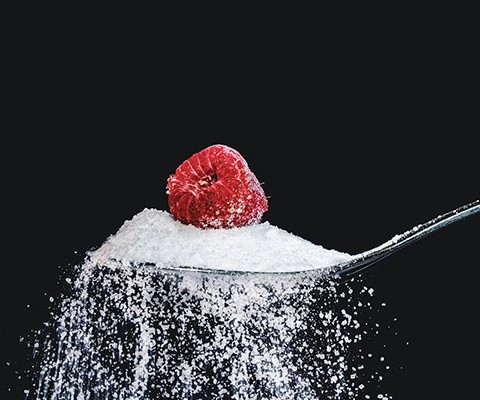
Does Sugar Make Kids Hyperactive?
Posted by Bulk Nutrients
Estimated reading time: 5 minutes
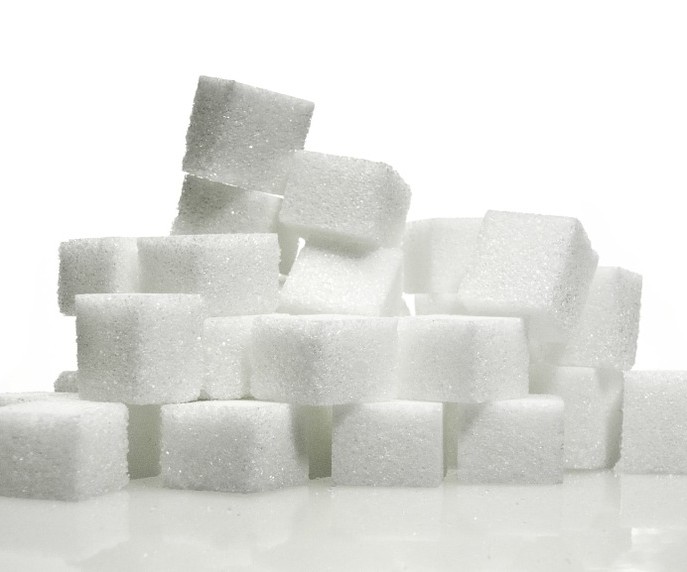
The Ultimate Guide to Artificial Sweeteners
Posted by Ellie Hearn
Estimated reading time: 8 minutes

There's a new review into artificial sugars
Posted by Bulk Nutrients
Estimated reading time: 7 minutes













































